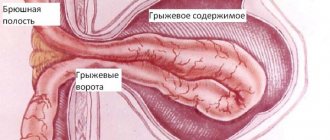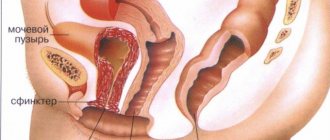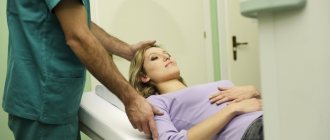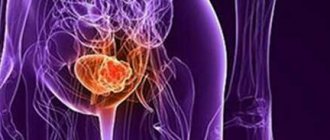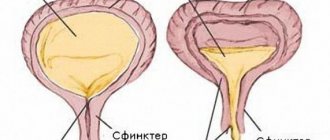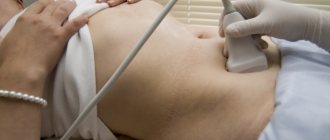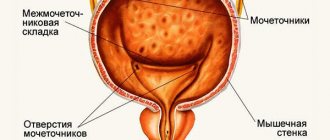Indications for BCG therapy
If there is a high probability of relapse of the disease and transition to an invasive form, they resort to administering the BCG vaccine into the bladder cavity. These may be the following cases:
- Papillary cancer (T1) of the second degree and higher, with a tumor size of more than 3 cm, or in the presence of several formations.
- Papillary cancer (Ta and T1) of the third degree.
- Carcinoma in situ – it has a number of features. Firstly, it is flat, which makes it difficult to remove it surgically. Secondly, it often grows into the bladder mucosa.
Specialists from our partner clinics will definitely explain to the patient why BCG therapy in this case is justified and appropriate and is the most appropriate treatment. For those who have undergone surgery, a break of more than two weeks is taken to allow for recovery.
What does the vaccine contain?
An important factor in the impact of any drug is its composition. BCG, used to treat bladder cancer, consists of weakened bacteria belonging to the BCG-1 strain. Solute concentration: 0.025 g per milliliter of vaccine.
The drug package contains:
- packaging designed for safe disposal of elements after use;
- medicine in a glass bottle;
- a vial of sodium chloride at a concentration of 0.9 percent;
- adapter;
- ampoule knife;
- instructions.
These items are necessary for the correct preparation of the vaccine solution. Before use, you need to check the presence of all the elements listed in the instructions.
Description of the method
Treatment with the vaccine takes six weeks. After this, it is recommended to take a break for a month and a half and begin repeating the course again. Now once a week, one to three weeks.
Maintenance therapy is also possible if the result is good. It can be carried out for three years. The drug administration schedule is once a week. For 1-3 weeks with a break of six months.
In each specific case, the doctor will give detailed explanations and warn about all possible complications and adverse reactions.
How is the treatment carried out?
Treatment is possible on an outpatient basis. One session takes about 3 hours. After this, the patient can return to his home.
Before the session, the patient is advised to limit fluid intake so that the concentration of the drug injected into the bladder does not decrease. Your doctor will definitely tell you in more detail about the preparation and correction of the therapy taken before BCG therapy.
During the appointment, the patient takes a comfortable position. The nurse carefully inserts a catheter through which the drug is administered. The first quarter of an hour will need to be spent lying on your stomach, and after that you can get up and even move around. The therapeutic effect of the drug depends on the amount of time it remains in the bladder cavity. This is usually two hours. If necessary and other indications, the exposure time can be reduced, strictly in consultation with the attending physician.
You should not urinate during the procedure. This may cause some difficulties. Sometimes the catheter is left in the bladder, blocking the exit. This allows the drug not to leak out during the procedure.
At the end of the session, the patient is allowed to urinate into the toilet or the catheter opening is opened, allowing the drug to flow out.
The patient is advised to take precautions at home and in public places. Because BCG is a live vaccine, other people should not be exposed to the TB pathogen (even as it is contained in the vaccine). To do this, for the next six hours you need to make sure that urine does not splash on the toilet or hands. After urinating, the toilet should be treated with an undiluted solution to destroy vaccine residues and left for 15 minutes. The water flushes with the toilet lid down. The patient will be told about all this before and after the procedure.
Contraindications
Intravesical instillation of the drug is contraindicated in the following persons:
- with an allergic reaction to the active or auxiliary substances;
- with a congenital or acquired defect of the immune system;
- who are being treated with immunosuppressants (in particular corticosteroids, cytostatics or radiation);
- with active tuberculosis or another disease that requires treatment with tuberculostatic drugs;
- with overt urinary tract infection until a sterile urine culture is obtained.
The drug should not be prescribed to pregnant women, women with suspected pregnancy or during breastfeeding, or children. The doctor must be notified of all medications that the patient has taken recently, even those sold without a prescription. During the course of BCG therapy, it is necessary to limit intake antibiotics that have an antibacterial effect against Mycobacterium tuberculosis, acetylsalicylic acid and some anticoagulants. Local use of steroids is not considered a contraindication to treatment with the drug.
Side effects
The first thing the drug affects is the bladder. Therefore, most complications relate to local reactions. Below we list the main possible complications.
- Various unpleasant or painful sensations in the bladder area can persist for up to two days. To reduce them, it is recommended to increase fluid intake and, if necessary, use an anesthetic drug.
- Less common concerns include fever , cough and joint pain . The first symptoms of such ailment should be reported to your doctor immediately. This may be a sign of infection and require immediate treatment. In case of such complications, anti-TB drugs may be required.
- Allergic reactions in the form of skin rash and arthralgia are possible
- To avoid serious complications, therapy is not given to people over 80 years of age. And it is carried out with caution for people over 70 years of age.
Pharmacological action of the drug
Carcinoma that affects the superficial layer of the ureter is prone to recurrence. This suspension modulates the body's immune system and activates it to fight cancer.
The vaccine acts as a kind of non-specific stimulator of the patient’s immunity, which attracts cells of the immune system into this fight. And also, it has a beneficial effect and stimulating effect on the patient’s spleen.
Thus, BCG enhances the activity of macrophages, cells that are able to capture and devour foreign bacteria and toxic elements to the body. That is, it activates the natural killers of harmful bacteria.
Intravesical administration increases the number of granulocytes, which protect the body from infection and the spread of fungi, monocytes, and T-lymphocytes. Their activation indicates that the immune system has begun to fight the malignant tumor.
Dosage
The patient is prescribed this drug if papillary, superficial bladder cancer has been removed, in the amount of one hundred and twenty milligrams of the drug once every seven days. The duration of such treatment is six weeks.
And this process should begin no earlier than the twenty-first day after taking a biopsy from suspicious areas.
If the malignant tumor has regressed and cytological examination indicates a negative result, then BCG therapy is prescribed for prevention once every three months. The duration of such injections is designed for two years.
Side effects
When receiving therapy with this vaccine, it is necessary to familiarize the patient with side effects that may occur during treatment. Most often, these effects go away on their own.
But sometimes symptomatic treatment is required. In other cases, if side complications occur, therapy with this drug is completely stopped.
Side effects often occur in people with a bladder size of less than one hundred and fifty milligrams. BCG therapy is rarely prescribed to patients over seventy years of age.
All patients who should receive this vaccine should be monitored by their doctor to ensure that a bad scenario does not develop.
Frequent side effects that accompany patients:
- an increase in temperature to thirty-nine degrees for a duration of no more than two days;
- the appearance of blood in the urine;
- with deterioration of kidney function;
- for allergic reactions, skin rashes, sneezing;
- acute cystitis;
- headache;
- general body aches and disturbances in normal condition;
- vomiting and fatigue.
In such cases, it is better to stop the treatment procedure or prescribe complex symptomatic treatment.
special instructions
Local toxicity may affect driving or the operation of other machinery. It is also contraindicated to administer it subcutaneously or intravenously
It is important not to injure the bladder channels, otherwise it can be fatal.
The medicine should be stored in the refrigerator. Do not use tools and utensils intended for other solutions. People diagnosed positive for AIDS should be excluded from handling this drug.
If the solution has been spilled on the skin or its surface, neutralize it with a chloramine solution. And waste and instruments are sterilized with steam within an hour and a half.
Patients undergoing this treatment should avoid any contact with people who are HIV positive.
The medicine is available only by prescription and only in special cancer centers. You can buy it at a reasonable price.
